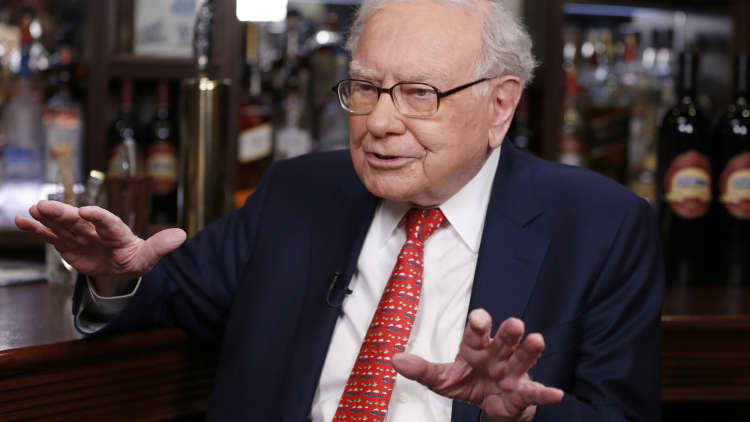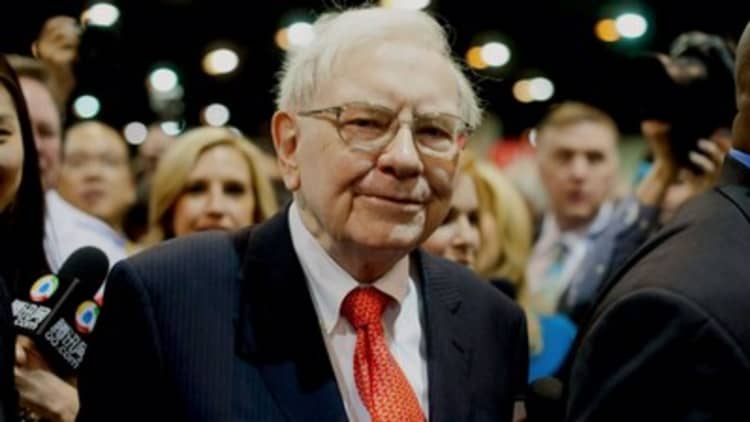Billionaire investor Warren Buffett is keenly aware of the potential for gross inequality in the very system that has allowed him his own success. The octogenarian investor is worth almost $80 billion and is the third richest person in the world, according to Forbes.
"I don't think I need a tax cut," Buffett tells CNBC regarding the recently released Republican tax plan.
The new tax framework would eliminate the estate tax, which is levied on money and assets transferred from one person to another at the time of death. Nixing the "death tax" would be a "terrible mistake," says Buffett, because he says that change inordinately benefits the rich.
"The truth is: if they passed the bill that they're talking about, I could leave $75 billion to a bunch of children and grandchildren and great grandchildren, and if I left it to 35 of them, they would each have a couple of billion dollars," all without having to pay tax to receive the inheritance, says Buffett, who has three grown kids.
"Is that a great way to allocate resources in the United States?"
If they were lucky enough to ... have the right name, Buffett, they could build tombs for themselves like Egyptian pharaohs never dreamed of.Warren BuffettCEO of Berkshire Hathaway
Buffett says the inheritance system already leaves some starting their lives massively ahead of others.
"If they were lucky enough to come out of the right womb and have the right name, Buffett, they could build tombs for themselves like Egyptian pharaohs never dreamed of. They could do anything and capitalism was all about intelligent allocation of resources," says the Oracle of Omaha, a nickname the Berkshire Hathaway CEO earned in reference to his hometown.
And if those children are not resourceful with the wealth they are born into, then that is a failing of the economy, says Buffett.
"But if they blow it all, that means that they've done some dumb things with some important resources. That's not good for capitalism. I don't think it's good for the children," he says.
"I sure don't think it's good for a society where there's a ton of inequality to start with. I think that's a terrible mistake."

This is not the first time the billionaire investor has commented publicly on unfairness of the economy he has benefited from.
"The real problem, in my view, is ... the prosperity has been unbelievable for the extremely rich people," Buffett told PBS Newshour in June.
"If you go to 1982, when Forbes put on their first 400 list, those people had [a total of] $93 billion. They now have $2.4 trillion, [a multiple of] 25 for one," he said in June. "This has been a prosperity that's been disproportionately rewarding to the people on top."
Buffett also told PBS Newshour he'd be perfectly content with a lot less money than he has. "I would be happy with, you know — certainly with $100,000 a year, I could be very happy."
And though it might be irritating to hear such platitudes from a billionaire, Buffett has taken actions to give away the majority of his resources.
He and Microsoft co-founder Bill Gates co-founded the Giving Pledge, a voluntary commitment by the richest people in the world to give away at least half of their wealth. The goal of the Giving Pledge is not only to help those in need but to encourage others to do the same.



